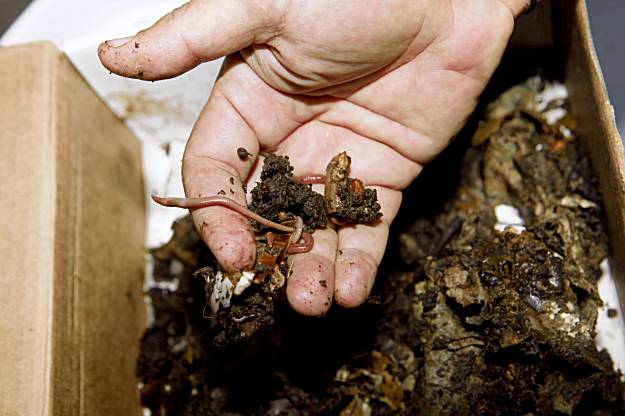
Recently I heard Robert Blakemore talk about earthworm biodiversity, ecology and taxonomy. Blakemore, a fellow at the Soil Ecology Research Group at Yokohama National University, reveals that less is known about soil than the oceans and even outer space. Soil is the foundation of our food and human life, even though in the mega-cities it is easy to forget that it is buried under the pavement.
Blakemore explains that worms enrich the soil and double crop output. As such, they play a role in ecology perhaps similar to bees: essential for food production yet often invisible and in decline.
The permaculture movement promotes worms for urban farming. Vermicomposting uses worms to break down food waste and turn it into fertilizer. Red wigglers, or Eisenia fetida, are recommended for worm boxes because they eat their body weight in food every day and produce exceptionally nutritious castings.
In Tokyo, city-run composting depends upon each individual ward government. I wonder if many individuals or groups are using worm composting. And what about the state of earthworms in Tokyo parks and soil? Here’s a how-to for building your own worm box.

